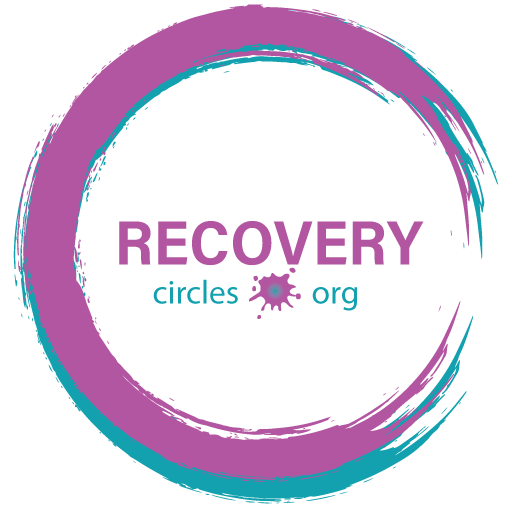Process Addiction
Are you struggling with a process addiction and looking for support? Get in touch with us today or keep reading to learn how Sober House Philadelphia’s process addiction programs can help you take the next step toward healing.
You can also call us at (267) 412-3258
Featured In





“
I finally feel like I have a future. These people believed in me when I couldn’t.
– John L.
“
What I found here wasn’t just recovery housing in Philadelphia, it was a group of people who truly cared if I succeeded. They held me accountable and helped me rebuild.
– Tony F.
“
As a single mom, I needed a place I could trust. This affordable sober home in Philadelphia gave me that and more. I’m forever grateful.
– Jasmine T.
See more of our success stories
Addiction comes in many forms — it’s not limited to alcohol or drugs. Process addiction, which involves compulsive engagement in certain behaviors or activities, can be just as harmful to your physical, emotional, and social well-being as substance addiction. While it might appear more subtle, those experiencing a process addiction often find it difficult to stop on their own and typically need support and treatment to regain control.
If you or someone you care about is facing a process addiction or simply looking for more information, Sober House Philadelphia is here to help. Reach out to us today to learn more about how we can support you on your recovery journey.
You can also call us at (267) 412-3258
What Is Process Addiction?
Process addictions, sometimes called behavioral addictions, involve an intense, often uncontrollable urge to engage in a specific activity — even when it leads to harmful mental, physical, or social consequences. People struggling with process addictions typically chase the emotional high or sense of euphoria that comes with the behavior. Sadly, once the moment passes, feelings of shame, guilt, or regret often follow. To avoid those painful emotions, many end up returning to the same behavior, creating a difficult cycle to break.
As with any addiction, process addictions require the right intervention, guidance, and treatment for lasting recovery. While some individuals may attempt to stop on their own, it’s rarely easy to maintain long-term change without proper support. That’s why it’s so important for anyone facing a process addiction to reach out for the help they need — recovery is possible, and no one should have to face it alone.
How Does Sober Treat Process Addiction?
Because process addiction can look different for everyone, we believe in providing highly personalized care for each person who comes through our doors. Through a valued partnership with our sister program, The Heights Treatment, Sober House Philadelphia offers a compassionate, thoughtfully designed treatment program for individuals struggling with process addiction.
We understand that lasting recovery begins with understanding the root cause of the problem. That’s why we take the time to connect with each client, getting to know their unique story, challenges, and needs. Our dedicated team uses a focused, supportive approach to uncover the underlying factors and triggers behind the behaviors — helping us create a treatment plan tailored specifically to the individual.
At Sober House Philadelphia, you’re never just a case file. You’re a person with a story that matters, and we’re here to help you reclaim control and move forward.

Sober Livings

Outpatient Treatments

Individualized Intensive Program

Sober Companions
Process Addiction Vs. Substance Addiction
While process addiction and substance addiction may show up in different ways, they actually have a lot in common. Both types of addiction work by increasing levels of feel-good chemicals like endorphins and dopamine in the brain, creating a sense of pleasure and reward. Over time, both can lead to powerful cravings, growing tolerance, and a decrease in self-control when faced with triggers.
The key difference lies in what fuels the addiction. Substance addiction involves the use of alcohol or drugs to achieve the desired effect, while process addiction comes from repeatedly engaging in a certain behavior — like gambling, shopping, or excessive internet use — to chase that emotional high. Substance addictions often show more visible, physical symptoms, such as changes in weight, appetite, or sleep patterns. In contrast, process addictions can be harder to recognize because they revolve around behaviors. In fact, some of these behaviors, like gambling or shopping, might be socially accepted or even encouraged, despite the harm they can cause to someone struggling with addiction.
Cities We Serve
What Are the Types of Process Addictions?
Process addictions are often grouped by the specific behavior at the center of a person’s compulsive focus. Some of the most common types include:
- Sex Addiction – Engaging in sexual activity releases chemicals in the brain that boost mood and relieve discomfort. Individuals with sex addiction often pursue compulsive sexual behaviors to chase this feeling. They may become preoccupied with sexual thoughts or activities and feel irritable, restless, or discontent when unable to act on those impulses.
- Love Addiction – This involves obsessing over the idea of an ideal relationship, often ignoring the reality of the connection itself. Love addicts might repeatedly seek out toxic or incompatible partners as a way to cope with emotional struggles. Their sense of self-worth often depends on others, and they may jump from one relationship to the next when feeling empty or unfulfilled.
- Shopping Addiction – For those struggling with shopping addiction, the act of purchasing provides a temporary sense of control and relief from underlying feelings like anxiety or depression. This addiction can take many forms — compulsive buying to avoid negative emotions, obsessive bargain hunting, frequently purchasing and returning items, or fixating on luxury and high-status goods.
- Gaming & Technology Addiction – From endless hours of gaming to compulsive scrolling through social media, technology can quickly become a harmful escape. People dealing with this addiction often use these outlets to avoid emotional pain and struggle to limit their screen time. Over time, this can lead to depression, isolation, poor social skills, and even physical health problems.
- Exercise Addiction – While regular exercise is part of a healthy lifestyle, too much can become harmful. Individuals addicted to exercise often prioritize workouts over personal relationships, responsibilities, and even their own physical and mental well-being, risking injury, burnout, and emotional strain.
Exercise Addiction – While regular exercise is part of a healthy lifestyle, too much can become harmful. Individuals addicted to exercise often prioritize workouts over personal relationships, responsibilities, and even their own physical and mental well-being, risking injury, burnout, and emotional strain. - Food Addiction – This type of addiction involves an uncontrollable urge to consume food, often those high in fat, sugar, or salt, for the pleasure it produces. Even when not hungry, those struggling with food addiction may continue eating to chase the temporary emotional relief it offers, making it difficult to stop without help.
Are There Process Addiction Treatments Near Me?
Overcoming a process addiction isn’t easy — but at Sober House Philadelphia, we’re here to walk alongside you every step of the way. Our clients are always our top priority, and we strive to create a welcoming, supportive environment where you feel valued, understood, and truly part of the process.
We care about your whole self — mind, body, and spirit — and our treatment approach reflects that commitment to holistic wellness. Through our partnership with The Heights Treatment, we also offer trusted resources and programs in Fishtown and Mt. Airy for those seeking specialized care outside the area.
If you or someone you love is struggling with a process addiction, we encourage you to reach out. Let’s have a conversation about your needs and explore the treatment options that are right for you. Hope and healing are possible — and it starts with one call.
Call our recovery specialists at Sober House Philadelphia today at (267) 412-3258 or fill out our contact form to learn how joining our Philadelphia sober living community can help you reclaim your life. Whether you’re seeking clean and sober housing, structured transitional support, or simply someone to talk to — we’re here for you.


